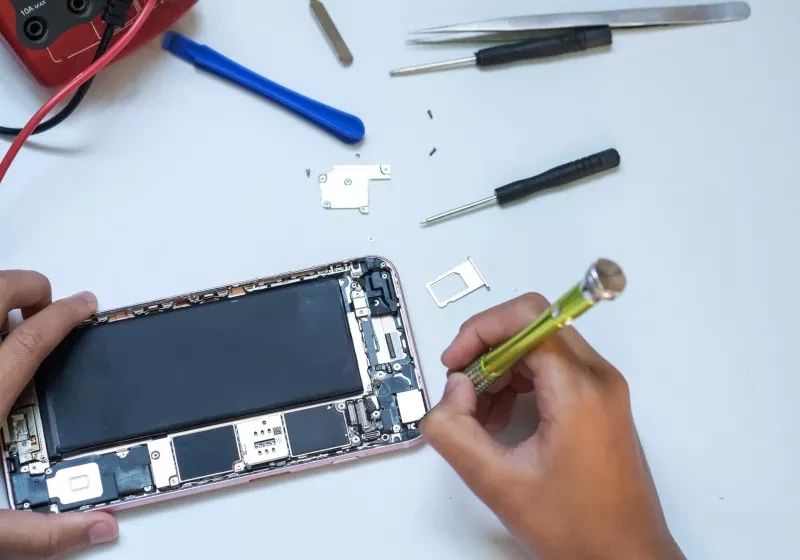Google Voices its Support for Oregon’s Proposed Right-to-Repair Law
In a not-so surprising move, Google has recently expressed its backing for a new right-to-repair law in Oregon, marking a significant shift in the stance of Big Tech companies towards the repair and maintenance of electronic devices. This step comes as part of a broader trend illustrating the gradual relinquishment of Big Tech’s stronghold over proprietary repair practices and the increasing alignment with the right-to-repair movement (R2R).
The Endorsement
On Thursday, Google officially announced its endorsement of a proposed law in Oregon that aims to compel manufacturers to provide users with access to the necessary tools and components required to repair their devices. This legislation emulates similar laws passed in other states such as California and New York, reflecting a growing momentum in advocating for consumer rights within the technology industry.
A Unified Initiative
According to Steven Nickel, Director of Operations for Google devices and Services, “This legislation represents an inclusive compromise that brings tech companies, small repair companies, environmental leaders, and legislators to the table to find common ground and support the repair movement.” This collaborative approach signifies a pivotal stride in fostering a more inclusive ecosystem for repairing electronic devices, bridging the gap between stakeholders with varying interests.
Empowering DIYers and Independent Repair Shops
If implemented, the proposed law would grant do-it-yourself enthusiasts and independent repair shops access to tools, parts, instructions, and schematics for a wide range of equipment, ranging from phones to computers. Notably, Google has been selling parts and tools through IFixIt’s online store since 2022, underscoring a commitment to fostering an environment conducive to independent repairs.
A History of Opposition
The endorsement from Google signifies a remarkable shift, considering the historical resistance demonstrated by Big Tech firms against the right-to-repair movement. Notably, major industry players including Apple, Microsoft, Lenovo, Nokia, Tesla, and others have exhibited a reversal in their stance on self-repair, signaling a broader transformation within the technology sector.
Driving Forces for Change
Advocacy for the right-to-repair is gaining traction not only due to pressures from lawmakers but also through internal activism within the industry. The imperative of addressing sustainability and environmental considerations has prompted manufacturers to reassess their repair policies, compelling them to pivot towards strategies that enable extended product lifecycles and enhanced repair options.
Google‘s Firm Commitment
Google‘s focus on sustainability and its aspirations for net-zero emissions by 2030 underline its firm commitment towards fostering repair-friendly landscapes. Ted Briggs, Head of Google Strategy & Sustainability, has emphasized the necessity for empowering consumers with amplified repair options to prolong the longevity of essential hardware technologies, aligning with the increasingly critical societal emphasis on sustainable practices.
Proposed Solutions
Briggs advocates for legislative measures that address “repair outcomes” rather than imposing design alterations upon companies. Furthermore, he recommends regulations that preclude companies from implementing software impediments to repair, countering instances where manufacturers have employed software tweaks to hinder third-party repair attempts, as notably observed in the case of Apple.
industry-Wide Shift
Google’s stance mirrors a broader industry-wide shift, with even major competitors such as Apple, Lenovo, and Microsoft showcasing a similar pivot in their approach towards repair accessibility. Notably, previously combative stances have evolved into proactive support for right-to-repair bills and initiatives, reflecting an increasing consensus within the industry on the importance of user-repairability and consumer empowerment.
Cost Considerations
Despite the evolving support for right-to-repair measures, the cost-effectiveness of self-repair remains a prevailing concern. Comparatively, obtaining repair services directly from Google or Apple proves to be a more economical option, owing to the relatively elevated prices of parts and tools essential for self-repair. This disparity poses an ongoing challenge that necessitates attention.

Conclusion
In conclusion, the endorsement of the proposed right-to-repair law in Oregon by Google marks a momentous stride toward enhancing consumer rights and promoting sustainable and repair-centric practices within the technology domain. The momentum garnered by this development signifies an industry-wide shift towards embracing repair accessibility and user-empowerment, warranting continued attention and advocacy to ensure that repair rights are safeguarded and fortified for the benefit of consumers and the Environment alike.
Source: techspot








No Comments